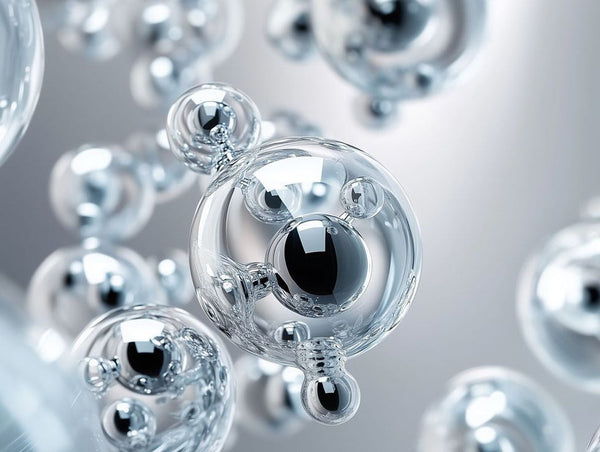Collagen Supplements vs. Topical Application: Which Is Better for Skin Health?
The Impact of Internal and External Factors on Skin
Our skin constantly battles against internal and external factors like poor diet, stress, sun exposure, and sleep deprivation. While we strive to maintain a healthy lifestyle, busy schedules often make it challenging. Proteins like Collagen are to keep your skin healthy but naturally see a decline after the mid-late 20’s. With the introduction of Collagen, brands have upped their game with topical products and supplements. Let's discuss the impact of these and how they work to maintain skin health.
Topical Formulas
Topical formulas act like delivery vehicles for ingredients directly to the skin. Different products, like toners and serums with smaller molecules for deeper penetration or moisturizers for surface hydration, cater to specific skin types and concerns. However, the effectiveness of these products hinges on several factors. First, ingredients must overcome the barrier of the outermost skin layer, the stratum corneum.
It's important to remember that typically only around 6-8% of a topical product is absorbed by the deeper layers. Despite this limited absorption, the remaining ingredients can still interact with skin cells to achieve their desired effects, such as stimulating cell turnover, reducing inflammation, or enhancing hydration.
Collagen Supplements: Working from the Inside Out
On the other hand, supplements work from the "inside out," meaning they aim to work on a cellular level. After ingestion, collagen undergoes digestion in the stomach and small intestine. Here, enzymes break down these molecules into smaller peptides and individual amino acids. The smaller components can be absorbed into the bloodstream through the intestinal lining.
The Impact of Collagen Form on Absorption
The form of collagen can significantly impact absorption. Hydrolyzed collagen, where the collagen molecules are already broken down into smaller peptides, has a significant advantage. Due to their smaller size, hydrolyzed collagen peptides are nearly 100% absorbed by the gut lining compared to regular collagen capsules. This enhanced absorption allows them to potentially deliver a higher concentration of these building blocks to the body.
Benefits of Hydrolyzed Peptides
Hydrolyzed peptides, due to their smaller size, are absorbed more efficiently than regular collagen supplements. This enhanced absorption can boost collagen production, improving skin texture and hydration. However, it's important to remember that maintaining healthy skin involves a holistic approach: regular exercise, staying hydrated, eating a balanced diet, getting enough sleep, and managing stress.
The Role of Collagen in Skin Health
This superhero protein keeping our skin looking plump and youthful, acts like scaffolding that supports skin structure. Natural production peaks in our early twenties, but slows down as we age, leading to wrinkles and sagging.
These supplements, containing broken-down collagen molecules for easier absorption, may stimulate the skin cells responsible for collagen production. This can potentially enhance elasticity, improve hydration, and reduce wrinkles by strengthening the network. While research is ongoing, supplements are generally safe and can be a potential addition to your skincare routine.
The Takeaway
An intake of oral collagen supplements can transform your skin by providing essential amino acids that support natural collagen synthesis from within, improving elasticity, and hydration, and reducing wrinkles more effectively than topical treatments. Scientific evidence suggests that supplements have more significant and lasting effects on skin quality, making them a preferred choice for comprehensive skin rejuvenation. Integrating collagen supplements into your routine can lead to profound and enduring improvements in skin health.



























 DOWNLOAD NOW
DOWNLOAD NOW
